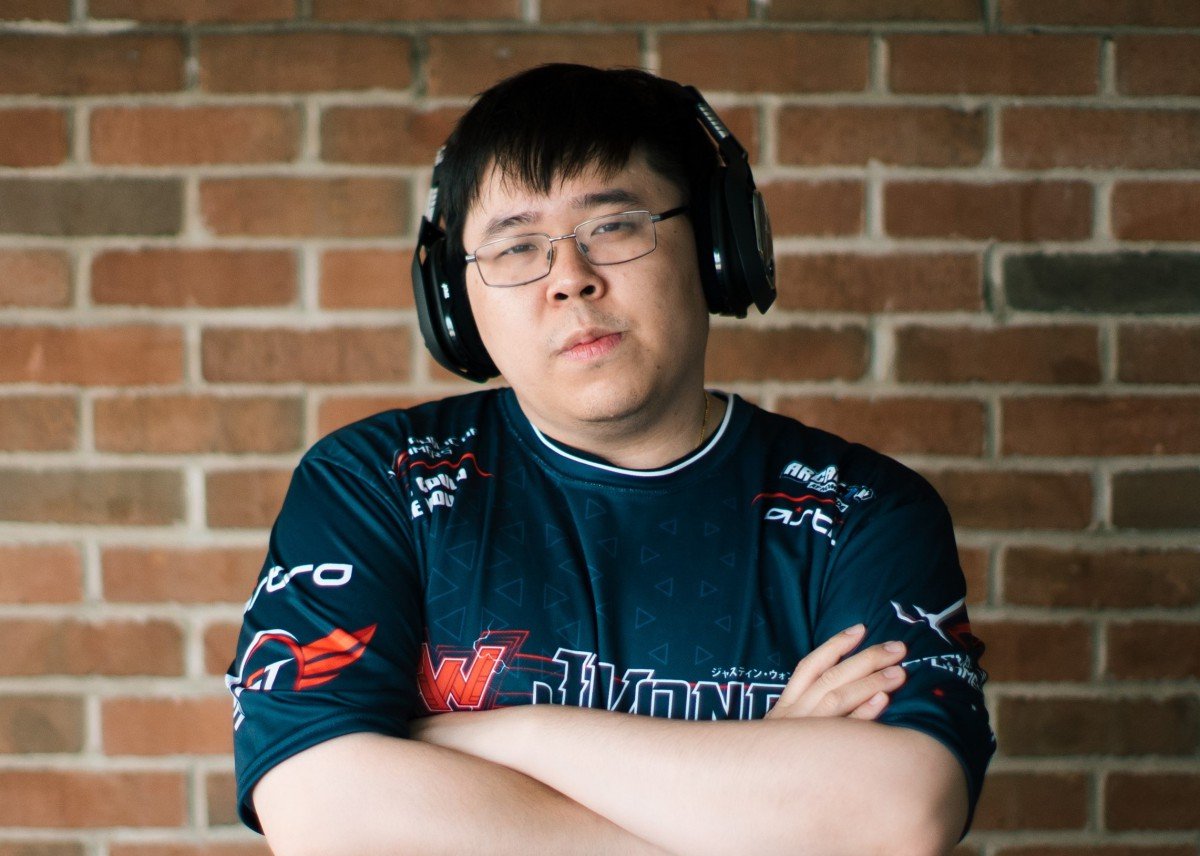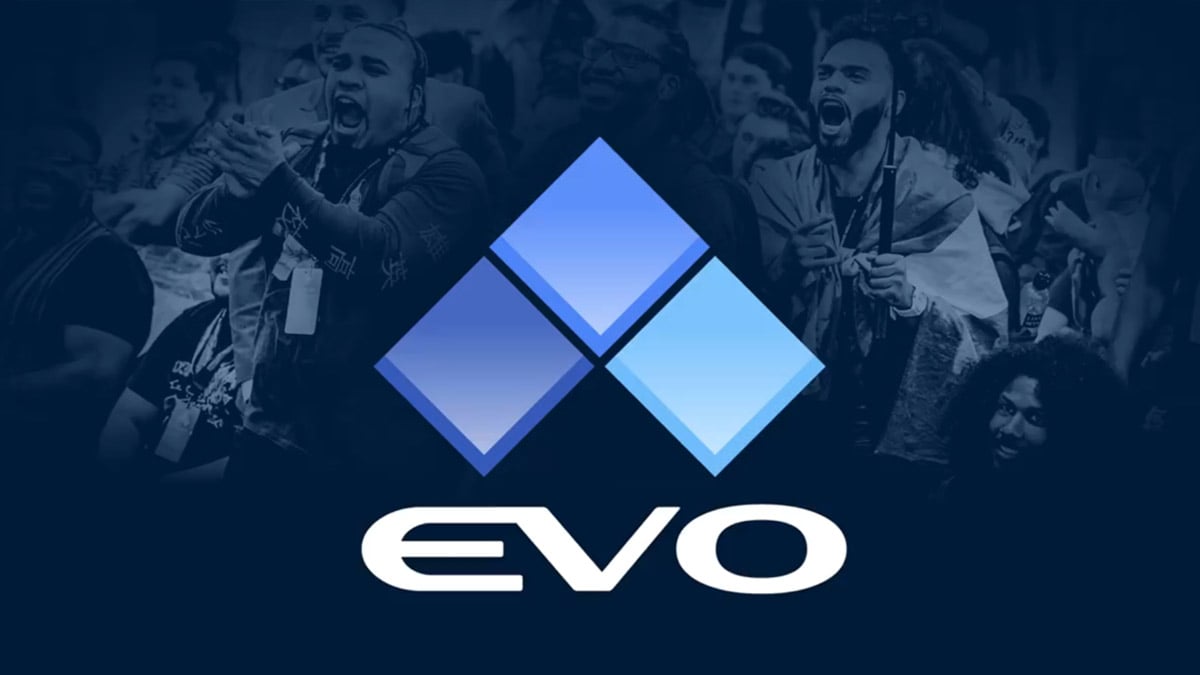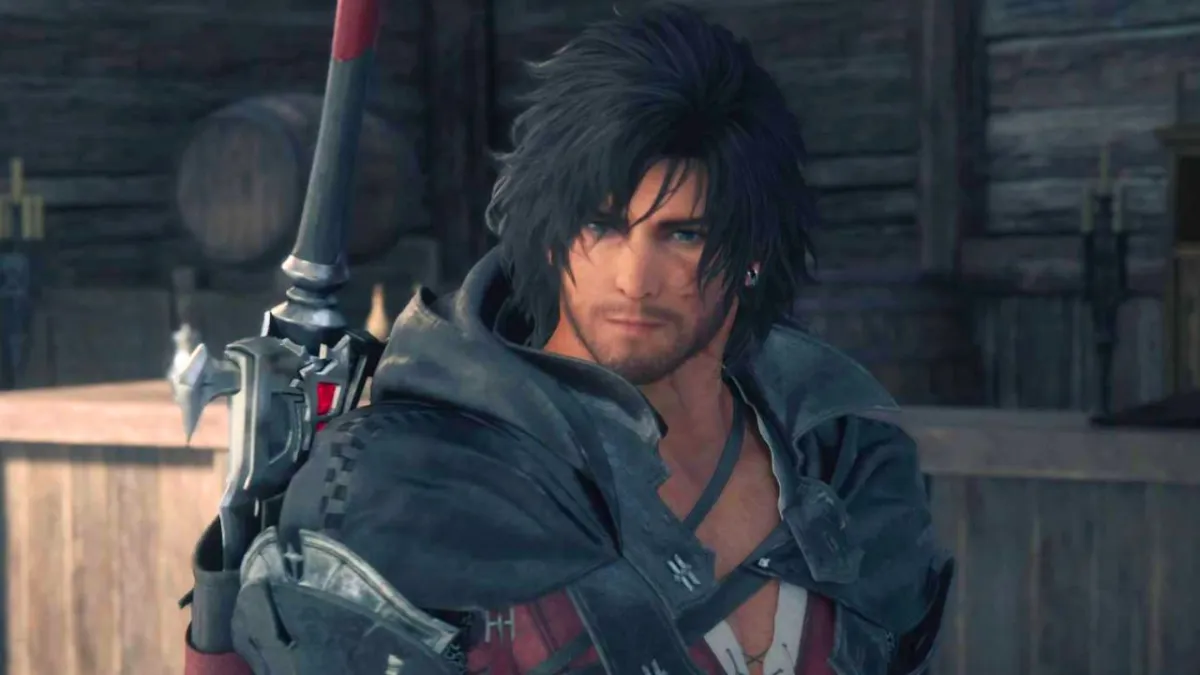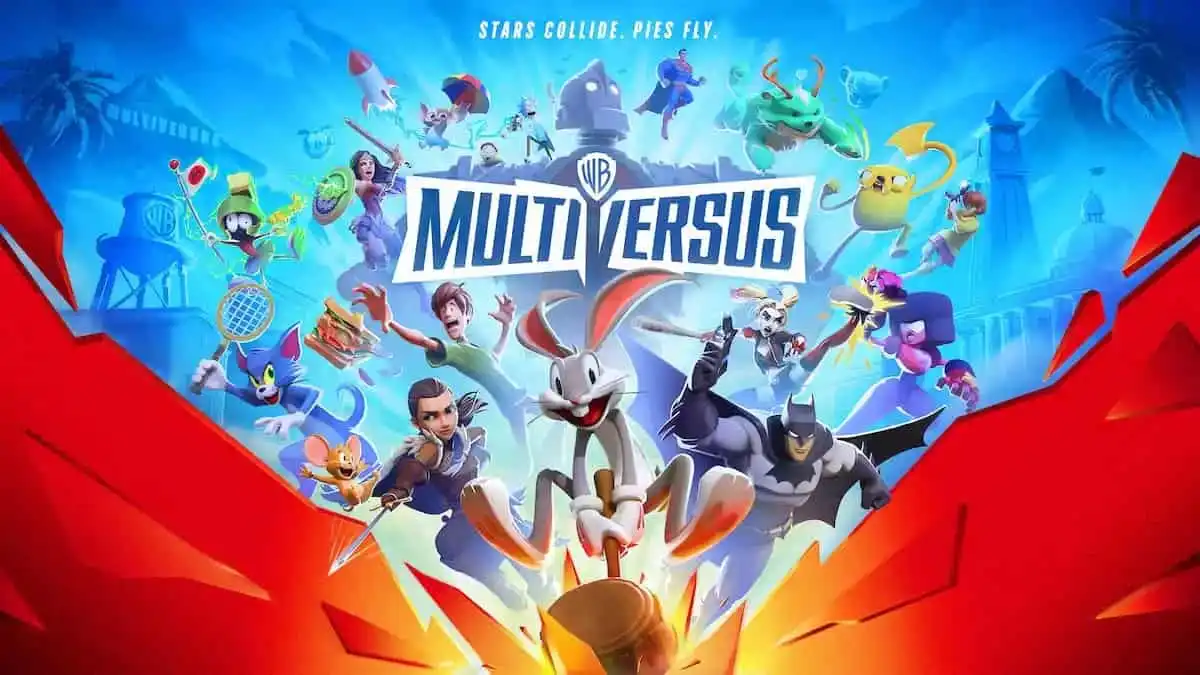Justin Wong is one of the most decorated and well-known figures in the Fighting Game Community. His career dates back to as early as Evo 2002 where he won Marvel vs. Capcom 2.
Over the years, Wong has picked up countless games, remaining at the top level of Marvel vs. Capcom, Street Fighter, and, most recently, Samurai Showdown. He competes at the highest level of fighting games and is also now his own sponsor.
After spending a majority of the last 10 years of his career with Evil Geniuses and Echo Fox, Wong went solo earlier this year and now sponsors other players. Team JWong was responsible for flying five players out to Evo in order to compete, while Wong competed in both Street Fighter and SamSho. He ended up dropping out of SFV to focus on SmaSho and placed third, adding another game to his list of top finishes at Evo.
Before the event even began, Wong talked with Dot Esports about how life as an esports player has changed due to fatherhood, his new GameStop clinic on fighting games, and playing older games in the current scene.
We know from following you on social media that you have made active changes to your esports schedule so that you can be a constant presence in your child’s life. How has becoming a parent truly impacted your approach to esports and what events you attend?
Wong: I would say it changed a lot. For one, I haven’t done any international traveling yet this year. Usually, my travel schedule is pretty packed, but now, because of Harper, I don’t want to travel as much. I want to be at home more, which means focusing on making content and doing activations, stuff like that to make me stay in North America more so that I can be there, see her crawl, first words. I want to see everything she does the first time and experience those special moments. I don’t want to wait for a second child to experience all of that.
Right now, I am just extra heavy on work. I lose track of time pretty easily now. I don’t really talk to my friends as much anymore, because when they want to go out or anything, I always just want to chill or check my emails. I am always thinking about what I want to do next. It really changed me from a more casual, relaxed kind of guy into one who looks super busy all the time, which I am.
Did you have a specific idea or mindset going in to produce your video series for GameStop? What was your main focus when making a clinic to help people get better at fighting games?
Watching their previous clinics for Overwatch and PUBG, I really wanted to get a grasp for how they wanted things. A lot of people who do go to a GameStop are more casual than anyone in the FGC, where most people are well informed on the different games and terms, or know how to play because they go to tournaments. I wanted to make content for gamers who are maybe more shy, reserved, or don’t know how to play fighting games but want to get into them because they have seen them all the time.
Maybe they grew up playing Street Fighter or have seen Tekken 7 in the store, or maybe they went on YouTube and saw gaming videos about fighting games since they are pretty big on YouTube now. It’s one of those things where I want to explain things to the newer audience on what the FGC is, how to get into it, how to get better, and if you are going to your first event, how to approach that right. This is more of an introduction to the FGC because often times when people hear about us, they get scared. I approached this work with GameStop as a more peace and love type of content piece to help newcomers get into the FGC.
You can find some similar content out there, but it is rough around the edges. Some of those videos still mention things like frame data, and I don’t want to talk about that in an intro. If I never played fighting games before and heard someone try to explain that using a move is a good option because it is plus six, I would ask why we are doing calculus instead of playing video games. I want to teach people that this is fighting games, this is how you play it.
When people first touch a fighting game, they are going to be inclined to just press buttons. They are going to view it like God of War or Devil May Cry where they just press the square button 50 times, but it only comes out maybe three times. I want to try and condition people not to mash and understand what happens when they press one button, not 10 buttons at the same time.
How do you pick what content you decide to make? Is there a focus on advertisements or is it just what you’re into making at that time?
It is actually random. When I was doing research on other people doing YouTube and Twitch channels, I never want to be known as that one guy who does the same thing. I wanted to be known for variety, but I want to stay variety to what I love. I love video games, I love fighting games, mobile games, card games, food, and anime. I want to focus on what represents me rather than me being forced to do something I don’t want to do.
I think me being forced into something I don’t want to do makes the enjoyability part disappear and hurts the content. That is why it is so random, it really just depends on me. But it is always in the same range of subjects.
You’re your own boss now and have made your own brand. Was wanting to focus on the things you like or feel are more important to you a big factor in that or was it a mix of different things that made you want to branch out?
I think it was a mix of different things. I know a lot of my friends told me that I could do this and not have to rely on being with a team. It is just a lot of work and also a lot of stress, because what if they are wrong? What if I don’t re-sign with a team and that screws me over for the following year? It was a big risk and, as a person, I am as defensive in real life as I am in my gameplay. I was very scared for the first month. I was petrified and praying that things would go through.
I am a person who doesn’t like to rely on other people simply because I won’t have control of that situation, and if I don’t have control then I start to feel uneasy. I was taught growing up in New York that scared money don’t make money. That is kind of what I kept my mindset to and it was just one of those things where it worked out great, even if it is a lot of work.
I don’t have a manager. I do everything by myself in terms of taking calls, making proposals, understanding how to talk to companies. This is all me. It is pretty stressful I will say, but I always think back to how my grandma helped raise me as a kid. She always took care of me by going to work from about 4pm to midnight, but also making sure to take time to walk me to school, make me dinner, and that is a full-time job for about 18 hours. So I always tell myself that I can’t complain.
We are very fortunate in this day and age. I think me working hard is partly because I was born in the ’80s and could see the difference between pre-technology to where we are now. It makes me feel super blessed to be in this era and even though I know it is hard, it is easier now than it was back then.
You talk about how much you love the older titles in the FGC and it shows with how you compete in all of them at events like Defend the North. If you had to choose one of the older games to get picked up for a few bigger tournaments a year as a sort of renaissance, what would your choice be?
I would probably say [Street Fighter III] 3rd Strike. It is being heavily supported by the community. It has a community pro-tour. This guy named MutantXP who lives up in New York, a big 3rd Strike player since the beginning days, wanted to make this tour to make people better at the game and take it more seriously because Japan still takes all of the old games seriously.
I think it’s so good. I went to a 3rd Strike tournament, not even a SFV or Pro Tour tournament, just a 3rd Strike tournament. It made me miss all of those times where I would go to these random events that the community would throw their heart and soul into. It’s not professional, it’s not esports, or the Capcom Pro Tour, but it still has that passion from the Fighting Game Community.
And I mean now, remakes and retro games are kind of the in-thing in today’s society for video games. It’s in video games and movies, so I think because retro games, remasters, and HD re-releases are so popular now, it’s part of the reason older games like 3rd Strike are doing so well.
How would you compare the late stage of Street Fighter V that we’re in now to the similar stages of 3rd Strike, Ultra Street Fighter IV, and other games that you’ve played during your time at the professional level?
So I personally enjoy playing Street Fighter V and I think it is an awesome game even though a lot of people talk crap about it. I do think it is because of social media mostly. Because when 3rd Strike came out, everyone loved it. Then, when Street Fighter IV first came out, everyone said that the game sucked. But there was no Twitter, FaceBook, or Instagram to voice that opinion on.
Right now, Street Fighter V is in a really good place because it has brought so many people out from different regions around the world. When you think about Street Fighter, you think about how you are playing the game in arcade mode and you see the plane going to different countries. That is literally what the Capcom Pro Tour is.
At Evo, they need to put up the number of countries that come out to support and play the games because it is huge. You have people from America, all over Europe, South America, Australia, Asia, the Middle East, and Africa. I feel that every major region around the world has someone here working to become the best fighting game player for their respective game.
It is so amazing. They might not be able to communicate in English, and I might not be able to speak to them in their native tongue, but we can all communicate by playing a video game. I think that is something that a lot of people in the world have yet to realize.
What makes events like Evo, the Capcom Pro Tour, or even amateur events so special to you, not just as individual tournaments, but to the FGC as a whole?
I think it is overall just great because humans need social interaction. I would say before playing video games with other people, I was socially awkward and probably stuttered all the time because my English was very bad. Because I went into the Fighting Game Community, I met people at my local arcade, started going to tournaments in our area and eventually out in the midwest. Then we went out to the West Coast and later all around the world, and that traveling and competing really helped give me the push I needed to talk to people and make connections.
It really helped gain respect for people from all around the world. Because when you aren’t traveling much and you are just in your bubble, in your town or city, all you know is what you are used to. But experiencing all of that culture while playing video games, that was a blessing. The Fighting Game Community is more offline compared to all of these games now that are always online.
Online is more convenient and online qualifiers are so good for events, but who can say they traveled around the world to play Street Fighter? Not many people can say that. Even other esport gamers who play the more popular titles can’t say that. Most of their tournaments are in America, China, or Korea. But I have been to Kuwait for Street Fighter. I have been to Australia, all over South America, Europe, Asia, Japan, and China all to play Street Fighter. I don’t think many other esport players out there can say they have been to more countries than a professional fighting game player.







Published: Aug 10, 2019 06:15 pm